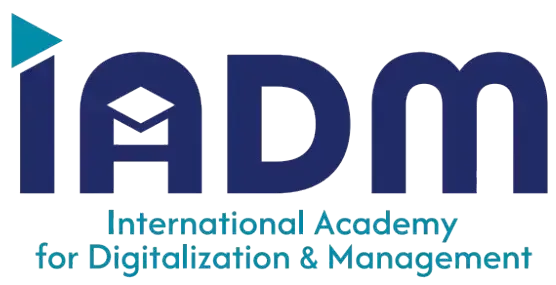Certified. Acknowledged. International.
Our Latest Blogs
Top Skills You Gain from a Managing Projects Course
Top Skills You Gain from a Managing Projects Course
In today's fast-paced and competitive business climate, the ability to manage projects effectively has emerged as a critical skill for professionals in all sectors. Whether managing a small team or a large and complex undertaking, project management provides the basis for projecting success by ensuring that goals are achieved on time, on budget, and to the highest quality standards. More organisations than ever are bringing value to employees who have the technical skills to do the job but also have the strategic and leadership abilities to take a project from inception to completion.
A managing projects course offers learners a structured path of development that leads them to the full range of competencies. It usually provides the opportunity for the learner to connect their theoretical understandings of project management with all levels of practice, so that the learner learns both the science and art of project management. Among other areas, managing projects courses cover most or all key areas required for success in many work environments, such as planning, scheduling, communicating, and risk management.

Strategies for Planning and Goal Setting
An important skill that students gain in a managing projects course is the skill of identifying clear, actionable goals and being strategic about creating plans to achieve them. One of the things project managers learn to do is disassemble their large objectives into smaller tasks and how they can contribute to their organisation's objectives.
This ensures that projects do not simply get "done" but accomplish something larger in the organisation. Strategic planning also identifies the tasks and timelines needed for realistic expectations, identifies and assigns responsibility, and outlines ways to monitor their execution.
Time Management and Scheduling
Time is usually the scarcest resource of any project. In the managing course, students will gain scheduling capabilities which extend to task priority management, resource management, and balancing deadlines. They will be given experience with time management tools such as Gantt charts, Agile boards, and scheduling software.
When time management skills are mastered, the possibility of causing delays is greatly reduced, while at the same time, eliminating bottlenecks and improving efficiency of execution is improved! Again, this will come into play for projects which have multiple stakeholders and deadlines that need to be met!
Effective Communication
Clarity of communication is a key aspect of successful project management. Courses will emphasise the ability to modify communication styles for differing audiences: executives, team members or customers. Whether it be leading an effective meeting, writing precise project documentation, or preparing successful presentation materials, effective communication helps keep everyone on the same page. Communicating well helps foster collaboration and diminishes misunderstandings, which are often the downfall of project timelines.
Leadership and Team Management
A project manager is more than simply a director of the work; they are a leader. Project management courses will always emphasise the development of leadership skills, such as how to motivate teams, resolve conflicts and understand various personality types. Learning to cultivate trust and the accountability of team members will focus the team on the common achievement of project goals within a results-based culture.
Problem Solving and Critical Thinking
Projects seldom progress without challenges. CPD courses teach learners a deliberate approach to problem-solving and critical thinking. You will learn how to analyse a scenario from multiple perspectives, assess potential alternatives, make informed decisions and generate solutions under pressure. This ability to think critically and act decisively will help minimise risks and move the project forward despite challenges.

Risk Assessment and Management
All projects carry risk in various degrees - be it financial risk, operational risk, or technical risk. With practical training, professionals can identify potential risks early, assess their impact, and build contingencies to mitigate the loss or damage due to such risks. Risk management skills will protect to an extent, but also equip teams with resilience and, thus, can also provide the ability to react quickly when unexpected issues arise in the delivery of a project.
Budgeting and Financial Management
Typically, courses in project management address finances and financial literacy in the form of budgeting and the skills required to budget effectively, while balancing the need for predictable costs against consumers' need for quality.
A project manager who demonstrates financial skills will be able to make trade-offs between competing views on the project budget, which can be especially important when stakeholders desire maximum output and minimum input. Strong financial skills will also support decision-making to sustain inclusive development over the long term.
Negotiation and Stakeholder Management
Managing multiple stakeholders, each with their interests and expectations, requires special skills. A course on managing projects will often focus on negotiation skills that are possible to utilise in order to balance the competing needs of stakeholders, while supporting the maintenance of a positive working relationship with them as well. Building trust, getting stakeholder buy-in, and lowering conflict can increase the chances of success for projects.
Wrapping Up
A managing projects course does much more than teach frameworks and tools—it transforms the way professionals think, lead, and execute. By developing skills in strategic planning, communication, leadership, problem-solving, risk management, and adaptability, learners are equipped to handle challenges in any industry. These competencies not only improve project success rates but also enhance career prospects, making individuals more valuable in a competitive job market.
As industries embrace digitalisation and artificial intelligence, the role of project managers is evolving rapidly. The ability to integrate technology with traditional project management practices is becoming a defining factor for success. If you’re ready to strengthen your project management skills and stay ahead in the era of AI-driven business transformation, explore the advanced programs at IADM Academy. Our courses are designed to prepare professionals for the future, ensuring you master not only project management fundamentals but also the cutting-edge digital tools that are shaping tomorrow’s workplace.
Our Students say...

Jasmin R.

The Data Protection and AI Governance course was practical, up-to-date, and taught by experienced professionals. I gained skills I could apply immediately, and within months, I landed a better role with more responsibilities!

Serena A. Wagner

Thanks to IADM’s Neurodiversity course, I now truly understand how to support employees with ADHD. I can identify their strengths, navigate challenges, and create a more inclusive work environment. The course was practical, insightful, and easy to apply

Sebastian Köhler

I took the Cybersecurity Awareness course at IADM and was genuinely impressed by how closely it reflected real-world challenges. From phishing risks to data protection, every module was hands-on and immediately applicable. IADM gave me the confidence!

